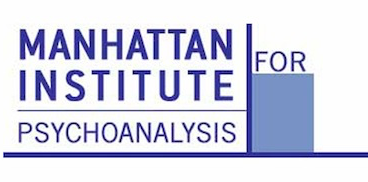On October 14, 2017, The Candidate Journal hosted an event at the National Psychological Association for Psychoanalysis (NPAP), “The Candidate, or, The Candidate, Barred,” as part of a series of panels on the topic of the candidate’s voice.
There, contributors to Issue 7 of the journal – myself included – as well as other psychoanalytic candidates and early-career clinicians, discussed “some of the themes brought up in the issue relating to questions of psychoanalytic training and institutional psychoanalysis: transference within the institute, matters of pedagogy, the transmission of psychoanalysis, the evaluation of candidates, the role of the state in psychoanalytic training, the training analysis and its place in the birth of an analyst. The goal, most broadly, was to provide an arena for candidates and early-career clinicians to theorize the candidate’s position, as well as to articulate something of the problem represented by the speaking candidate.”
It was my distinct pleasure to participate in this panel alongside peers from the Center for Modern Psychoanalytic Studies (CMPS), Washington Square Institute (WSI), Institute for Psychoanalytic Training and Research (IPTAR), Contemporary Freudian Society (CFS), and Toronto Institute of Psychoanalysis (TIP).
I made the following remarks in response to my own contribution to Issue 7, “The Making of Meaning in the License Qualifying Candidate: Some Experiential Reflections on Training,” and the issue as a whole. I am sharing them here on MIP’s Analysis Now blog in the hopes that we can continue the dialogue about vital issues of candidacy and training, within the Manhattan Institute and beyond.
*
I feel nervous to speak here today.
The irony isn’t lost on me. I’m an analytic candidate anxious about speaking on a panel devoted to an exploration of the candidate’s voice. Seems fitting, doesn’t it?
I’m never totally comfortable speaking in public. I get stomach flips, flushing, some shaking – the usual. But it seems noteworthy that I’m more nervous, more anxious, more insecure, to appear here today as a candidate than I would be if I were sitting on a panel about, say, how to write a book. I’m a writer and a writing coach. This was my professional identity, plain and simple… until I entered training.
Which seems like a lifetime ago, though it’s only been two years. That’s when I began to reevaluate who I am, what I do, and why I do it. I began to form a new identity, as a therapist, an analyst-in-training, and as a special category of candidate: the license-qualifying candidate. I began to grapple with that title and all that it carries, much of which I’m still discovering, some of which at this very moment.
All analytic candidates are engaged in a process of identity formation; this is an innate and necessary aspect of training. However, the LQ candidate, who enters training with no experience in a mental health-related field and therefore no identification as a provider of mental health, comes to this identity in a very different way than a traditional certificate candidate might. I would argue that this fundamental difference between candidates goes largely unattended.
After Issue 7 of The Candidate Journal came out, I heard from many readers who resonated with one particular moment in my paper where I suggest that “Our training does not yet and needs to encourage and facilitate a layering of identity and meaning (a message that sounds something like, in my case, ‘You are a writer and an analyst-candidate both’) rather than a substitution, one for the other (‘You were a writer; now you are an analyst-candidate’) — a position that is innately privileging, negating, and ultimately damaging.” One member of my institute, a social worker, shared with me that his experience of seeing his first-ever patient was akin to mine: in a word, panicked.
I appreciated his comments, and couldn’t help but wonder why I hadn’t heard anything like it before. I thought: Now you tell me! What a difference it would have made at the time to know that as an LQ candidate, I wasn’t alone in an experience that worried me precisely for that reason: I write, “As a writer by trade and identity, only a few short months into training, I was terrified of what [my] inexperience — my perceived and felt un-analyst-ness — might mean about me… now and in the future.”
We haven’t yet made up our minds about the relationship between who our candidates were and who they’re training to be. Maybe we never will. But in the meantime, this institutional ambivalence can make it so difficult, so nerve-racking, for an LQ candidate like me to speak about her experiences, and for existing members of the field, like my social worker colleague, to speak up with comparisons to his own. I suspect that if the LQ candidate’s voice is unsure, it’s because the field is unsure of it.
In this work that requires so much of ourselves, this work that in a very real sense is ourselves, the question we ask ourselves throughout training expands to take on new and important meanings: candidates start out asking “Who am I” and end up wondering “Who does the institution of psychoanalysis need for me to be?”
Justine Duhr, MFA, is a candidate in the license-qualifying program at the Manhattan Institute for Psychoanalysis. She is co-editor of the Analysis Now blog and chair of SCOOP, MIP’s Student Cooperative. She owns and operates WriteByNight, a writers’ service dedicated to helping people achieve their creative potential and literary goals.








11 Comments
Leave your reply.